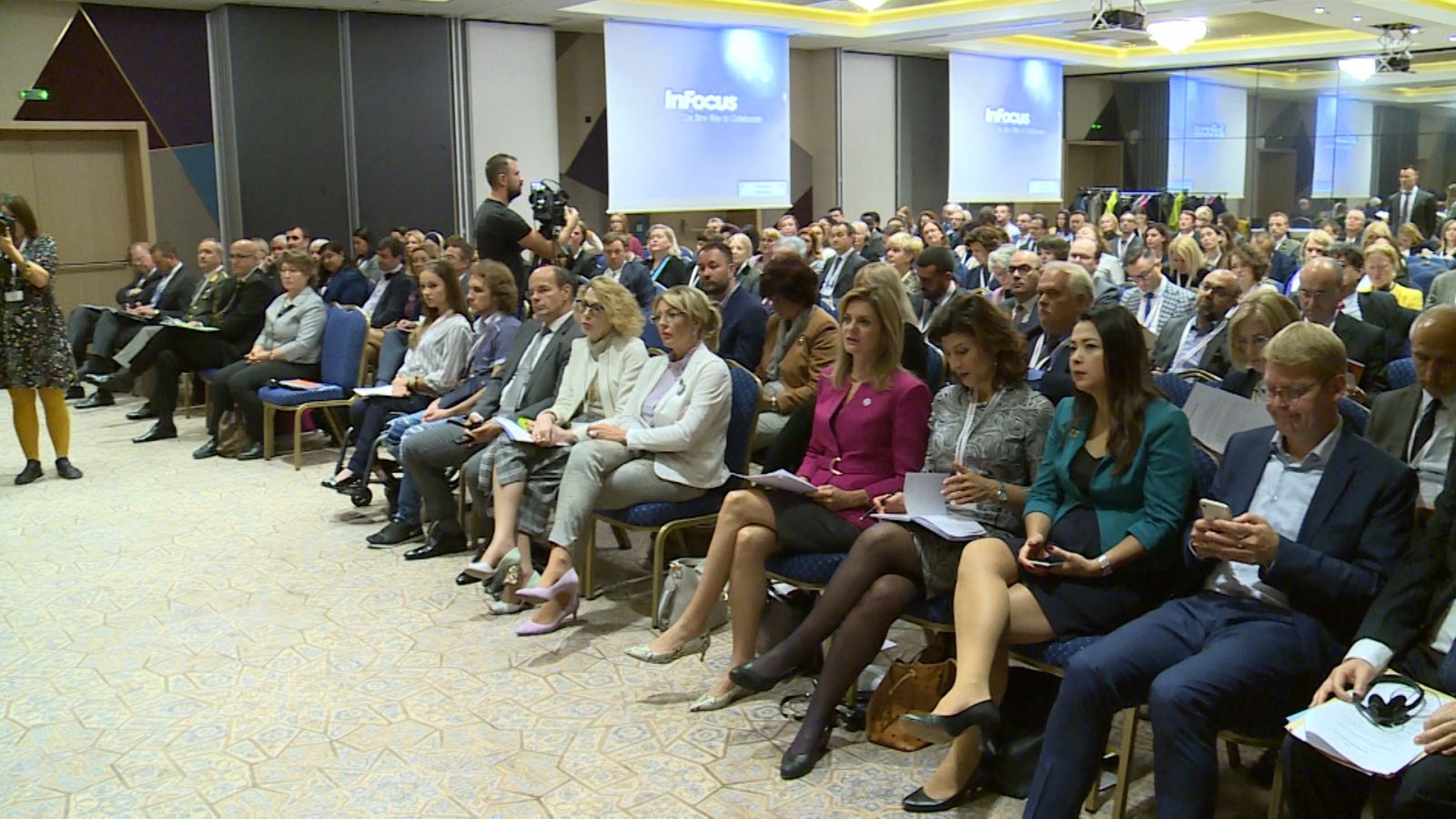
Serbia is fully committed to achieving the goals of the United Nations 2030 Agenda for Sustainable Development and is determined to continue the path of European integration, Minister of European Integration Jadranka Joksimović imparted in Sarajevo today.
“I assure you that you have a responsible and predictable partner from whom you shall always receive support”, said Joksimović at the conference “Population Dynamics, Human Capital and Sustainable Development in South-East Europe”.
Joksimović recalled that the Government of the Republic of Serbia has decided to implement the sustainable development goals through the country's European integration process.
Since the UN 2030 Agenda became an integral part of the EU political framework, Joksimović stated that Serbia had realized that it did not need “two paths” to achieve an economy of well-being, since this was the essence of the 2030 Agenda, as well as the main goal of European integration.
“An economy of well-being sounds nice, but sometimes it's not easy to convince citizens of concrete results. All the narratives concerning figures are fine, but if our citizens do not feel that they are living in an economy of well-being in their own country, everything becomes meaningless”, the Minister said.
In her words, during not so bright days regarding enlargement policy in the Western Balkans, along with an absence of a strong perspective for EU membership, one of the most important things for all responsible and capable governments was to create a new platform for development in their own country and for their citizens.
“Serbia is certainly at the forefront of the European integration process, it has opened nearly half of the negotiation chapters and we are not sceptical about our EU perspective, but due to certain scepticism in the enlargement policy, successful governance actually means that every responsible government must create a new platform for development in their own country and for their citizens,” said Joksimović.
This, she added, meant that the UN 2030 Agenda was not only a supporting platform, but also something we were living and implementing in our countries.
She recalled that this year, for the first time, Serbian President Aleksandar Vučić presented a Voluntary National Report on Sustainable Development Goals to the UN General Assembly in New York in September, pointing out that Serbia was one of the 47 countries that had submitted such a report.
She added that the Government of Serbia had formed a special working group in an attempt to coordinate the work of ministries in achieving these goals, one by one, as each goal achieved should allow another one to be attained in order to establish well-being for citizens.
“It sounds abstract sometimes, but it really isn't”, noted Joksimović.
She stated that a national investment plan had been prepared in Serbia, as part of the platform for achieving sustainable development goals, since a large amount of funds would be invested into the infrastructure, not only transport, but in other areas, from ecology to social infrastructure, providing drinking water to all citizens ...
“The citizens need to have all these things in their daily lives. Without that, we will not be a credible government, all of us in the region, regardless of our EU aspirations”, said Joksimović.
She stated that scepticism concerning EU enlargement, which was present previous days, had somehow helped the UN 2030 Agenda to be much more visible, but also showed that each country had its own development agenda.
She also said that these solutions must be “tailor-made”.
“Because, when population dynamics is discussed, it's certainly not the same to talk about explosive population dynamics in India and Serbia and other countries in the region where we constantly talk about losing people every day, not only because of low fertility rates but due to migration and so-forth”, stated the minister.
Joksimović added that this was why a tailored approach had to be applied.
The Minister added that topics of population, human capital and sustainable development were not the only things to be discussed at the conference and that special attention should be paid to these changes in the region.
As she said, the EU has its own internal debates, which are also related to these problems.
We are currently suffering from all the same ailments and that is why we need to see how these changes can lead to a positive outcome, and to stop complaining, said Joksimović.
“I can assure you that Serbia is fully committed to the UN 2030 Agenda and we are very determined to continue our European integration process. I assure you that you have a responsible and predictable partner that will always support you”, said Joksimović, adding that our country, as a leader in European integration, was expected to have greater responsibility and do more in assisting others.
Joksimović reminded that about 15 days ago, Serbian President Aleksandar Vučić launched a very important platform called “Little Schengen” with North Macedonia and Albania.
She said that this was a good arrangement for these three countries to re-create the best modality for movement of people, goods and capital.
“This initiative is not open only to our three countries, but to every country in the region, and in particular to candidate and potential candidate countries for EU membership”, she said, expressing her expectation that the Western Balkans region would bridge the current “gap” on the EU horizon.
That is why countries in the region are doing their best to promote population dynamics and human capital in a positive manner.
She expressed hope that other countries in the region also have responsible governments that aim to develop their economies for the benefit of their citizens.
The conference “Population Dynamics, Human Capital and Sustainable Development in South-East Europe”, is being organized by the Ministry of Foreign Affairs of Bosnia and Hercegovina and the UN Population Fund’s Regional Office for Eastern Europe and Central Asia, with the support of the Regional Cooperation Council.
Source: Tanjug





